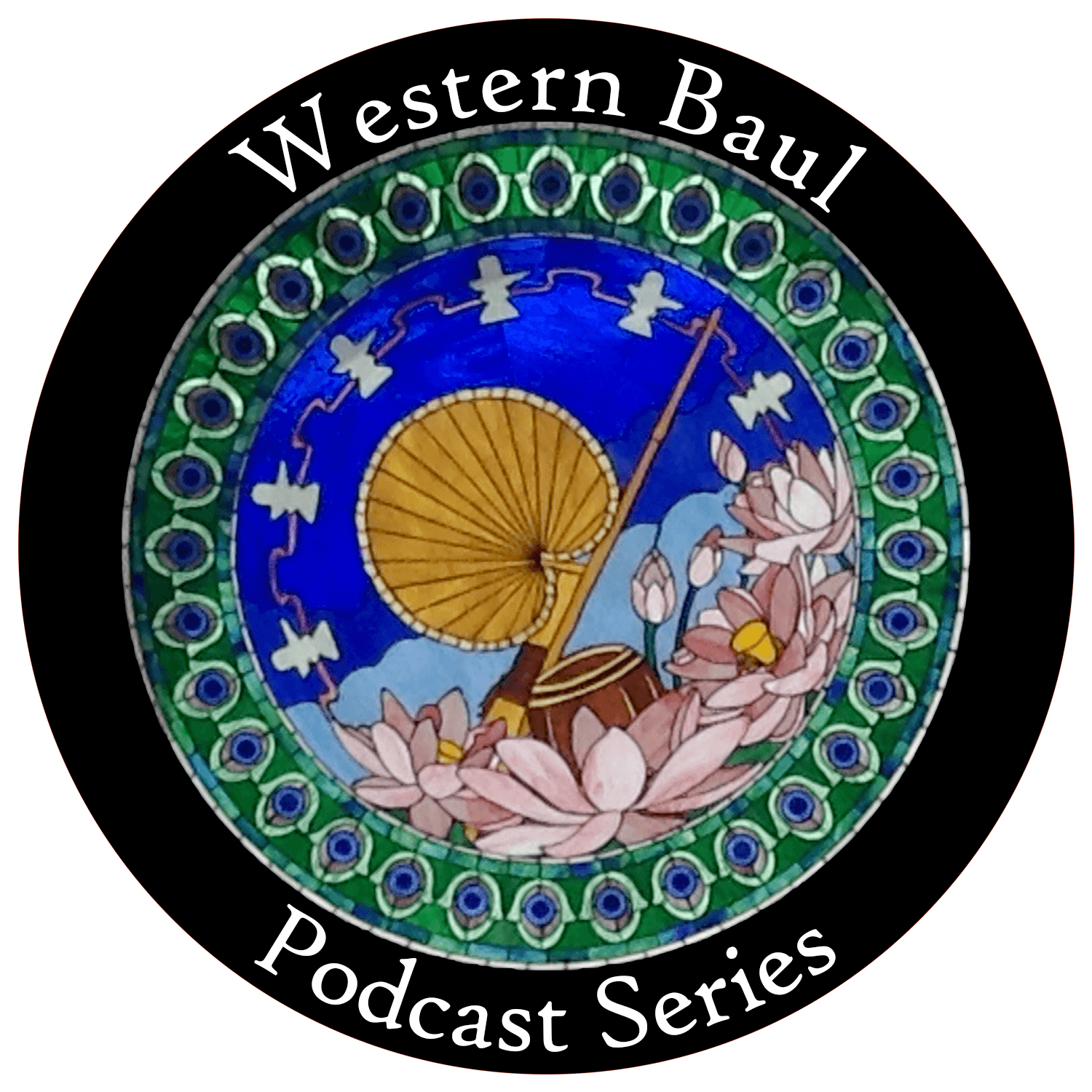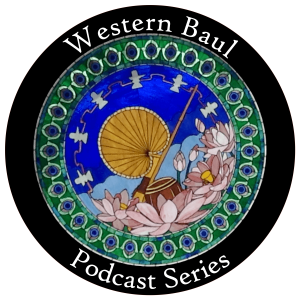
The Western Baul Podcast Series features talks by practitioners of the Western Baul path. Topics are intended to offer something of educational, inspirational, and practical value to anyone drawn to the spiritual path. For Western Bauls, practice is not a matter of philosophy but is expressed in everyday affairs, service to others, and music and song. There is the recognition that all spiritual traditions have examples of those who have realized that there is no separate self to substantiate—though one will always exist in form—and that “There is only God” or oneness with creation. Western Bauls, as named by Lee Lozowick (1943-2010), an American spiritual Master who taught in the U.S., Europe, and India and who was known for his radical dharma, humor, and integrity, are kin to the Bauls of Bengal, India, with whom he shared an essential resonance and friendship. Lee’s spiritual lineage includes Yogi Ramsuratkumar and Swami Papa Ramdas. Contact us: westernbaul.org/contact
Episodes

Thursday Jul 06, 2023
Losing the Taste for Drama (Bandhu Dunham)
Thursday Jul 06, 2023
Thursday Jul 06, 2023
There are dramatic things that happen to us in life, but we have some control over how we respond. Seeing drama for what it is—something self-imposed that we often create for ourselves—is a big step in loosening its grip. What we call fate may be something that came from our unconscious. Through reverse engineering, we can inquire if there was something that we did to set up drama. It’s all in the set-up and we set things up that we will experience later. Passive techniques for setting up drama include filters through which we see reality and justify emotional reactions to situations that are what they are. These show up in “listening for” that which we are primed to hear, interpretations that we make, and judgments, comparisons, and expectations. Active ways of creating drama include entanglement, contempt, procrastination, denial, and failure to create boundaries. The familiarity of drama is strangely a source of comfort. Setting and respecting boundaries is really an internal process. We can pay attention to what our favorite role is on the drama triangle: victim, persecutor, or rescuer. If harmony is our higher aim, we can see what is wanted and needed and take responsibility for our role to get off the drama triangle. There are two forms of trust: earned trust when we don’t trust until someone proves to be trustworthy, and generous trust when we start by trusting others with discrimination. There is more power in generous trust. Respecting our internal boundaries is the foundation to be able to trust in a generous way. We will be hurt at times, but we can recover. Drama can be seen as the opposite of dignity. With dignity, we can feel the true value of elegance and aesthetics in behavior. If we internally slow down and listen, the universe can tell us what needs to be done. Bandhu is author of Creative Life and an internationally recognized glass artist and teacher.

No comments yet. Be the first to say something!